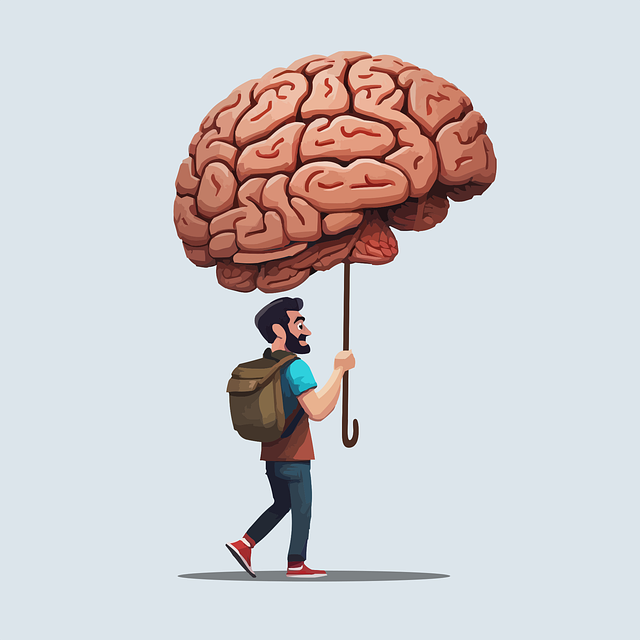Depression, impacting millions globally, is a complex mental health disorder with multifaceted causes. Early intervention is crucial, focusing on recognizing signs like emotional shifts, appetite changes, sleep disturbances, fatigue, and concentration issues. Longmont Eating Disorders Therapy emphasizes comprehensive support by addressing underlying factors through emotional intelligence, self-awareness exercises, and self-care practices. Lifestyle changes, such as exercise and balanced diets, along with emotional intelligence development and therapy, significantly prevent depression. Personalized therapeutic approaches, including cognitive-behavioral therapy (CBT) and group therapy, empower individuals to challenge negative thought patterns and enhance coping strategies. Building robust support networks through online/offline groups and open mental health conversations is vital for prevention and recovery in Longmont communities.
Depression is a prevalent yet treatable condition that affects millions. This comprehensive guide explores effective prevention strategies for Longmont eating disorders therapy and beyond. From understanding depression’s signs, causes, and recognizing risk factors to exploring lifestyle changes, therapeutic approaches, and building a supportive network, these insights empower individuals to take charge of their mental health. Discover practical steps towards a happier, healthier life, tailored to meet your unique needs.
- Understanding Depression: Recognizing the Signs and Causes
- Lifestyle Changes for Improved Mental Health
- Therapeutic Approaches to Prevention and Recovery
- Building a Supportive Network: The Role of Community and Care
Understanding Depression: Recognizing the Signs and Causes

Depression is a complex mental health disorder that affects millions worldwide, impacting one’s ability to feel joy and motivation. Understanding both the signs and causes is pivotal in navigating this challenging condition. Recognizing emotional shifts, such as persistent sadness, loss of interest in activities once enjoyed, changes in appetite and sleep patterns, can be early indicators. These symptoms often intertwine with other aspects of daily life, like increased fatigue, difficulty concentrating, or even thoughts of self-harm.
The causes of depression are multifaceted, stemming from a combination of genetic predisposition, environmental triggers, and brain chemistry imbalances. Events like trauma, significant life changes, or chronic stress can contribute to its development. Longmont Eating Disorders Therapy emphasizes the importance of addressing these underlying factors. Enhancing emotional intelligence and practicing self-awareness exercises can be powerful tools in prevention. Self-care practices, including maintaining a healthy lifestyle, seeking social support, and engaging in activities that foster well-being, play an equally crucial role in safeguarding mental health.
Lifestyle Changes for Improved Mental Health

Making positive lifestyle changes can significantly impact mental health and depression prevention. Regular exercise, for instance, boosts mood by releasing endorphins and promoting better sleep. A balanced diet, rich in nutrients, supports overall well-being. Longmont Eating Disorders Therapy programs often emphasize these aspects, teaching individuals how to cultivate healthy habits that strengthen their resilience against depression.
Additionally, cultivating emotional intelligence through mindfulness practices and therapy can help individuals understand and manage their emotions effectively. This reduces the risk of burnout prevention, a common trigger for depression. Mental Health Education Programs Design focused on building emotional awareness and coping strategies can empower people to take charge of their mental health and avoid spiraling into depressive episodes.
Therapeutic Approaches to Prevention and Recovery

Depression prevention strategies often involve therapeutic approaches that cater to the individual’s unique needs. Longmont Eating Disorders Therapy, for instance, has proven effective in addressing underlying issues related to mental health and disordered eating patterns. These therapeutic methods include cognitive-behavioral therapy (CBT), which helps individuals identify and change negative thought patterns and behaviors contributing to depression. By focusing on self-esteem improvement and empathy building strategies, CBT enables clients to develop healthier coping mechanisms and improve their overall well-being.
Additionally, group therapy sessions play a vital role in fostering support networks and reducing the stigma associated with mental illness. Through shared experiences and mutual understanding, individuals can find solace and encouragement from peers facing similar challenges. This collective environment facilitates open discussions, encourages empathy building strategies, and promotes a sense of belonging, all of which are crucial components in preventing and recovering from depression.
Building a Supportive Network: The Role of Community and Care

Building a strong support network is an integral part of depression prevention and recovery, especially when tackling issues like eating disorders in Longmont. Community and care play pivotal roles in fostering resilience against mental health challenges. Connecting with like-minded individuals who understand the struggle can provide a safe space to share experiences, offer encouragement, and celebrate progress. Support groups, both online and offline, facilitate these connections, enabling individuals to navigate their journey with reduced feelings of isolation.
This sense of belonging extends beyond peers; it includes family, friends, and even professionals. Encouraging open conversations about mental health within communities can lead to increased public awareness campaigns development and a reduction in the stigma associated with seeking help. Additionally, leveraging coping skills development through community initiatives empowers individuals to manage their well-being proactively, thereby preventing depressive episodes.
Depression is a complex condition, but with the right strategies, prevention and recovery are achievable. By understanding the signs and causes, making positive lifestyle changes, exploring therapeutic approaches, and building a supportive network, individuals can significantly improve their mental health. Longmont Eating Disorders Therapy emphasizes these integrated methods to empower individuals in their journey towards well-being. Remember, seeking help is a sign of strength, and with the right support, it’s possible to overcome depression and lead fulfilling lives.














